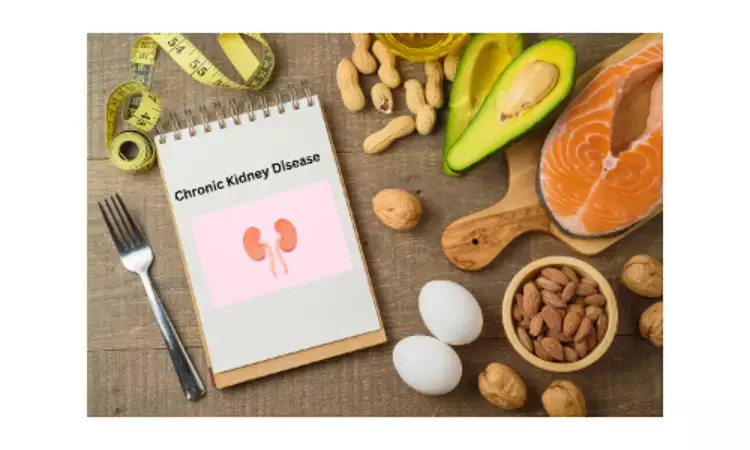- Home
- Medical news & Guidelines
- Anesthesiology
- Cardiology and CTVS
- Critical Care
- Dentistry
- Dermatology
- Diabetes and Endocrinology
- ENT
- Gastroenterology
- Medicine
- Nephrology
- Neurology
- Obstretics-Gynaecology
- Oncology
- Ophthalmology
- Orthopaedics
- Pediatrics-Neonatology
- Psychiatry
- Pulmonology
- Radiology
- Surgery
- Urology
- Laboratory Medicine
- Diet
- Nursing
- Paramedical
- Physiotherapy
- Health news
- Fact Check
- Bone Health Fact Check
- Brain Health Fact Check
- Cancer Related Fact Check
- Child Care Fact Check
- Dental and oral health fact check
- Diabetes and metabolic health fact check
- Diet and Nutrition Fact Check
- Eye and ENT Care Fact Check
- Fitness fact check
- Gut health fact check
- Heart health fact check
- Kidney health fact check
- Medical education fact check
- Men's health fact check
- Respiratory fact check
- Skin and hair care fact check
- Vaccine and Immunization fact check
- Women's health fact check
- AYUSH
- State News
- Andaman and Nicobar Islands
- Andhra Pradesh
- Arunachal Pradesh
- Assam
- Bihar
- Chandigarh
- Chattisgarh
- Dadra and Nagar Haveli
- Daman and Diu
- Delhi
- Goa
- Gujarat
- Haryana
- Himachal Pradesh
- Jammu & Kashmir
- Jharkhand
- Karnataka
- Kerala
- Ladakh
- Lakshadweep
- Madhya Pradesh
- Maharashtra
- Manipur
- Meghalaya
- Mizoram
- Nagaland
- Odisha
- Puducherry
- Punjab
- Rajasthan
- Sikkim
- Tamil Nadu
- Telangana
- Tripura
- Uttar Pradesh
- Uttrakhand
- West Bengal
- Medical Education
- Industry
Decision-Aid for Renal Therapy improves treatment quality among elderly with CKD

The study by Keren Ladin and peers found the decision aid called DART (Decision-Aid for Renal Therapy) improved decisional quality compared to usual care in older patients with advanced chronic kidney disease (CKD). The findings of this study were published in the Annals of Internal Medicine.
A total of 400 participants were recruited, with 363 of them being randomly assigned to either the usual care group or the DART group. The DART group received an interactive, web-based decision aid and written education about treatments, while the usual care group only received written education. The primary outcome was the change in decisional conflict scale (DCS) score from baseline to 3, 6, 12, and 18 months. Secondary outcomes included change in prognostic and treatment knowledge and change in uncertainty.
The highlights of this study were:
The decisional quality improved with DART, as the mean DCS score decreased compared to the control group. This result was consistent at the 6 month mark, but attenuated thereafter.
The DART group also showed improvements in knowledge and treatment preferences, with a decrease in the number of participants who were unsure about their treatment preferences.
The study found that the use of DART improved decision quality and clarified treatment preferences among older adults with advanced CKD for 6 months after the DART intervention. The use of decision aids like DART can be beneficial in helping older patients with advanced CKD navigate the difficult decisions regarding managing kidney failure, and reducing decisional conflict and regret.
Reference:
Ladin, K., Tighiouart, H., Bronzi, O., Koch-Weser, S., Wong, J. B., Levine, S., Agarwal, A., Ren, L., Degnan, J., Sewall, L. N., Kuramitsu, B., Fox, P., Gordon, E. J., Isakova, T., Rifkin, D., Rossi, A., & Weiner, D. E. (2022). Effectiveness of an Intervention to Improve Decision Making for Older Patients With Advanced Chronic Kidney Disease. In Annals of Internal Medicine. American College of Physicians. https://doi.org/10.7326/m22-1543
Neuroscience Masters graduate
Jacinthlyn Sylvia, a Neuroscience Master's graduate from Chennai has worked extensively in deciphering the neurobiology of cognition and motor control in aging. She also has spread-out exposure to Neurosurgery from her Bachelor’s. She is currently involved in active Neuro-Oncology research. She is an upcoming neuroscientist with a fiery passion for writing. Her news cover at Medical Dialogues feature recent discoveries and updates from the healthcare and biomedical research fields. She can be reached at editorial@medicaldialogues.in
Dr Kamal Kant Kohli-MBBS, DTCD- a chest specialist with more than 30 years of practice and a flair for writing clinical articles, Dr Kamal Kant Kohli joined Medical Dialogues as a Chief Editor of Medical News. Besides writing articles, as an editor, he proofreads and verifies all the medical content published on Medical Dialogues including those coming from journals, studies,medical conferences,guidelines etc. Email: drkohli@medicaldialogues.in. Contact no. 011-43720751


